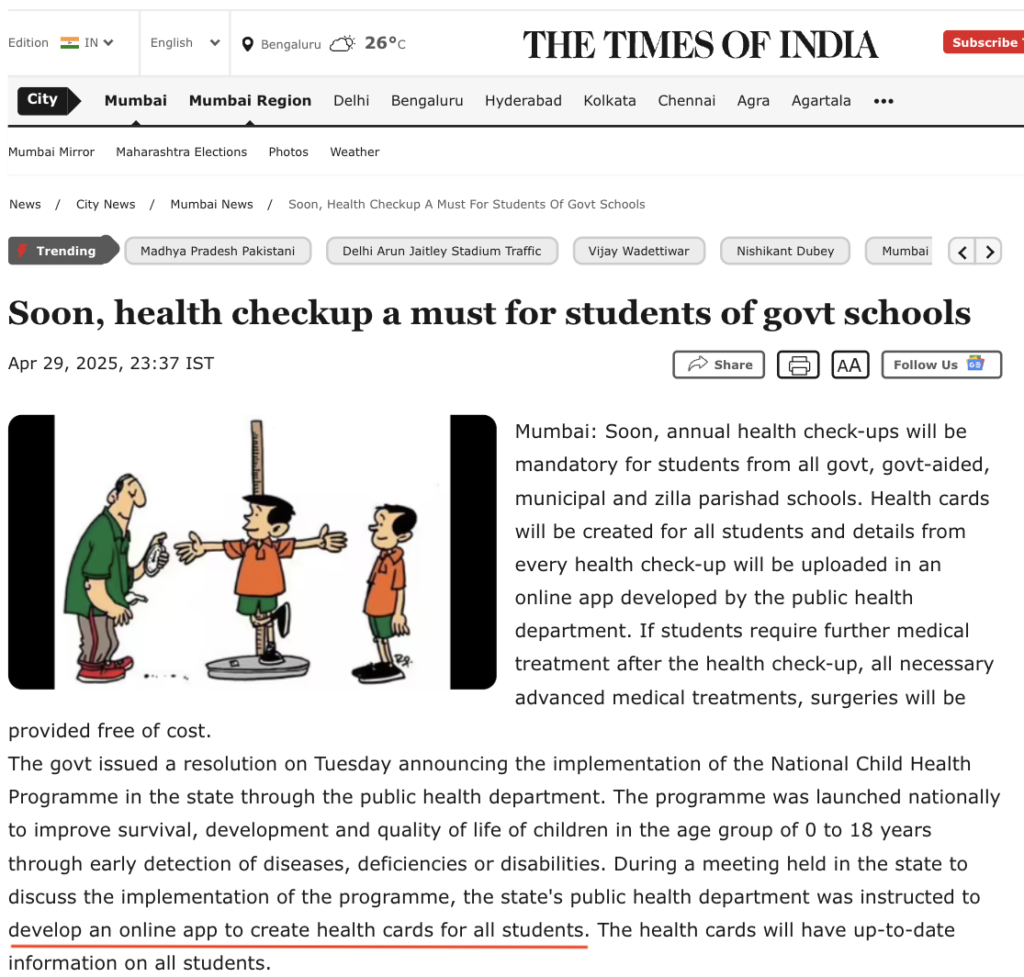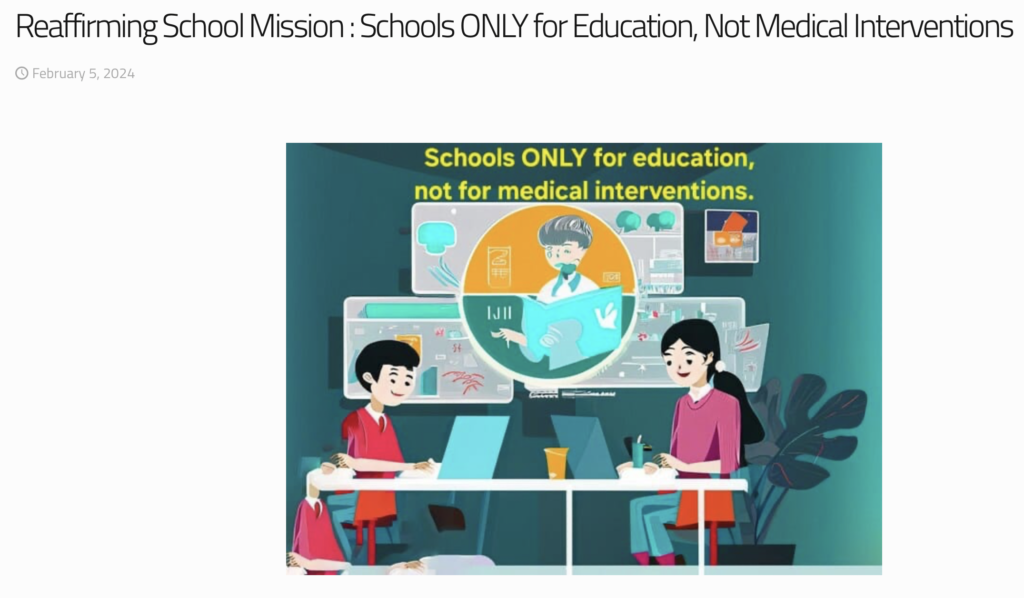Are schools crossing a line by collecting kids’ health data and administering vaccines? Should schools stick to just providing education, leaving health decisions to parents? These are important questions that have sparked debates in recent times. In this article, we will delve into the issue and discuss why schools should focus solely on education, not medical interventions.
Recent news indicates a push for mandatory health check-ups in government schools in some regions of India. For example, a recent report from the media states that annual health check-ups will soon be mandatory for students in government, government-aided, municipal, and Zilla Parishad schools in Mumbai. This program, implemented through the public health department, involves creating health cards and uploading check-up details to an online app. The program is part of the National Child Health Programme, which aims to improve the health and quality of life of children aged 0-18 years through early detection of diseases, deficiencies, or disabilities.

In India, the legal framework strongly supports the need for parental consent before any medical check-up is conducted on a minor in a school setting. The right to privacy and the protection of children’s rights are paramount. Parents have several legal avenues to challenge any mandatory health check-up that violates these rights, including filing complaints with the NCPCR and seeking legal remedies in the courts.
Involvement of Parents: The government is likely to recommend that parents be invited when health tests are conducted in schools .
The Indian government has decided to create rules for medical check-ups in schools after an incident in a Delhi school where students were asked to strip for health tests without parental consent. At Sardar Patel Vidyalaya, boys and girls were subjected to examinations that included improper touching by doctors, leading to protests from parents and children. The school claimed it was unaware of the nature of the tests, believing they were routine check-ups. New guidelines will require parental consent for even simple dental checks at schools to protect children’s privacy. The inquiry, led by the National Commission for Protection of Child Rights, stated that the incident could happen again without strict rules in place. The report calls for a public apology from the school but does not recommend revoking its license or compensation for the children. Additionally, the Medical Council of India will review the licenses of the doctors involved in the incident.
Ref: https://www.telegraphindia.com/india/school-check-up-rules/cid/1569770
One of the main concerns addressed by the Awaken India Movement is the issue of parental consent. Parents are often unaware that their children’s health data is being collected and shared without their knowledge or permission. This raises questions about privacy and consent, as well as the potential misuse of this sensitive information.
The Awaken India Movement highlights the importance of preserving schools as institutions dedicated to education. By raising awareness about the risks associated with using schools for medical interventions, the movement aims to protect the rights of students and parents and uphold the integrity of the education system.

Ref: https://awakenindiamovement.com/reaffirming-school-mission-schools-only-for-education-not-medical-interventions/
This letter addresses concerns about schools being used for health-related actions like collecting kids’ health data and giving vaccines. It emphasizes that schools should focus on education only, and health decisions belong to parents. It references legal judgments confirming that parental consent is mandatory and vaccination can’t be forced, and that authorities must inform parents fully about vaccines, including any risks.
The legal protections for parents are grounded in several judgments and constitutional rights. Notably, courts have emphasized that:
- Parents have the fundamental right to give or withhold consent for their children’s medical treatments, including vaccinations, as per the principles of personal autonomy and bodily integrity protected under Article 21 of the Constitution.
- The Supreme Court has explicitly ruled that no one can be forced to be vaccinated and that personal autonomy encompasses the right to refuse medical treatment, including vaccines. This is supported by the case Jacob Puliyel Vs. Union of India (2022), which states that bodily integrity and personal autonomy are protected rights.
- Informed consent is mandatory, and authorities are duty-bound to fully inform parents about the contents, side effects, and contraindications of vaccines. Vaccination cannot be administered without explicit parental consent, and parents have the right to refuse entry of medical procedures into their children without coercion,.
- Further, legal provisions mandate that health interventions in children only occur with the prior, free, and informed consent of the guardian, emphasizing the rights of parents to make decisions about their child’s health.
Therefore, parents have constitutional and legal protections that affirm their right to refuse vaccination and require informed consent for any medical intervention involving their children.
According to the letter, schools’ roles are strictly limited to education and should not extend to health interventions. The communication emphasizes that:
- Schools are primarily for imparting education and are not meant to serve as points for medical interventions or the collection of children’s health and personal data.
- Any health-related activities such as administering vaccines or collecting health data without parental consent are considered a violation of rights and should be stopped. The letter advocates that health care and decisions regarding treatments or vaccines are the prerogative of parents, not schools or government bodies.
- Schools should only disseminate information about health measures but must avoid coercion or mandates for medical procedures, emphasizing that health decisions are personal and parental rights must be respected.
Overall, the letter asserts that the role of schools is solely educational, and health interventions should be conducted within the privacy of parental authority and with informed consent, not as school-mandated actions.
Schools should be a place where students can learn, grow, and thrive, free from outside influences or agendas. Let’s keep schools for education, not medical interventions.
Aslo Read:
